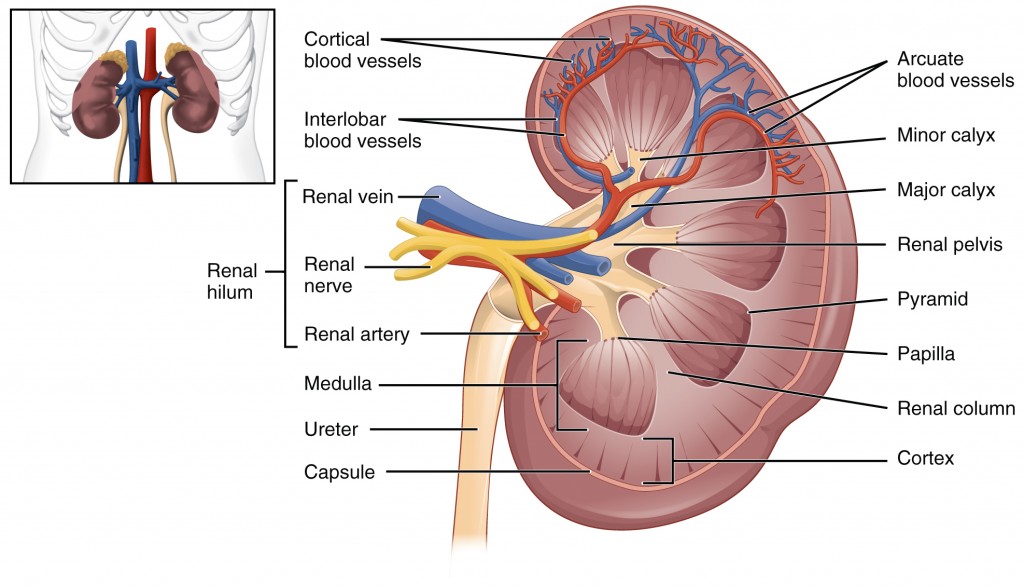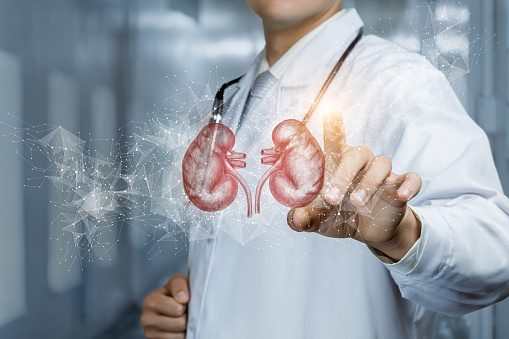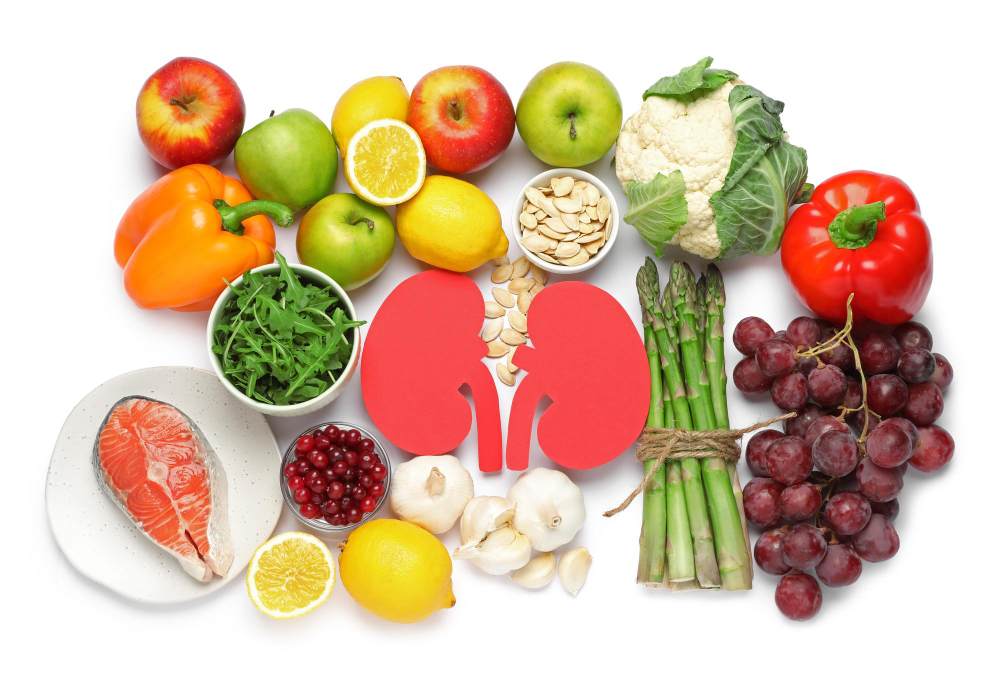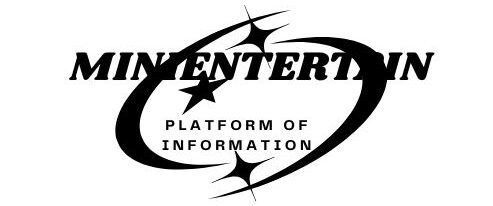Here are effective strategies to keep your kidneys healthy. Maintaining kidney health is essential for overall well-being, as these vital organs play a crucial role in filtering waste, balancing fluids, and regulating electrolytes. Adopting healthy lifestyle choices and dietary habits can significantly enhance kidney function and reduce the risk of kidney disease.

Table of Contents
What is the function of the kidney?

The kidneys are vital organs that play a crucial role in maintaining overall health. Located on either side of the spine, they perform several essential functions that help regulate the body’s internal environment.
One of the primary functions of the kidneys is filtering waste products from the blood. They remove toxins, excess salts, and urea—a byproduct of protein metabolism—producing urine that is excreted from the body. This process helps prevent the accumulation of harmful substances in the bloodstream.
Moreover, the kidneys produce hormones such as erythropoietin, which stimulates red blood cell production in the bone marrow, and renin, which regulates blood pressure. Overall, the kidneys are essential for detoxification, fluid and electrolyte balance, blood pressure regulation, and hormone production, making them critical to maintaining homeostasis in the body. Here are some vital kidney functions:
Fluid blood: The kidney adjusts the water in our body and reabsorbs the water from the filtered blood. which maintains blood pressure, hydration, and fluid overload.
Filtering blood: The kidneys process 200 quarts of blood daily and remove the waste from our body, such as urea, uric acid, and creatinine.
Regulating electrolyte balance: the kidney controls the level of electrolytes like sodium, potassium, and calcium in blood by adjusting their reabsorption.
Hormone producing: The kidney produces several hormone-like erythropoietin, which stimulates red blood cell production and can regulate blood pressure.
The main thing is the kidneys act as the body’s filtration system, ensuring that waste products are removed and essential substances are maintained at appropriate levels.
What are the signs of a kidney problem?
While there are no noticeable symptoms of early-stage kidney damage, as the condition progresses, you may experience the following:

What Are the Signs of a Kidney Problem?
General Symptoms:
- Fatigue
- Loss of appetite
- Nausea and vomiting
- Weight loss
- Trouble concentrating
- Muscle cramps
Urinary Symptoms:
- Frequent urination
- Painful urination
- Blood in urine
- Foamy urine
- Reduced urine output
Other Symptoms:
- High blood pressure
- Swelling in the feet and ankles
- Shortness of breath
- Bad breath or metallic taste in the mouth
The kidneys play a vital role in maintaining overall health by filtering waste from the blood, regulating fluid balance, and managing electrolytes. When kidney function declines or is compromised, it can lead to various health issues. Recognizing the signs of kidney problems early can be crucial for timely diagnosis and treatment. Here are some common symptoms to watch for.
1. Changes in Urination
One of the most noticeable signs of kidney problems is a change in urination patterns. This can manifest as:
- Increased Frequency: Needing to urinate more often than usual, particularly at night (nocturia).
- Decreased Urination: Producing less urine than normal, which may indicate fluid retention.
- Color Changes: Urine that is dark, cloudy, or has a strong odor can signal a problem.
- Foamy Urine: The presence of bubbles in urine can indicate protein leakage, a sign of kidney damage.
2. Swelling
Fluid retention due to impaired kidney function can lead to swelling in various parts of the body, particularly in the legs, ankles, and around the eyes. This swelling, or edema, occurs because the kidneys are not effectively removing excess fluid from the bloodstream.
3. Fatigue and Weakness
When the kidneys are not functioning properly, toxins can build up in the body, leading to feelings of fatigue and weakness. Anemia, often resulting from decreased production of erythropoietin by the kidneys, can also contribute to these symptoms, leaving individuals feeling unusually tired.
4. Nausea and Vomiting
Kidney problems can disrupt the balance of electrolytes and lead to the buildup of waste products in the blood, which may cause nausea and vomiting. Individuals may also experience a decreased appetite or an aversion to food, further impacting their nutritional intake.
5. Persistent Itching
Excess waste and toxins that accumulate in the bloodstream can lead to skin irritations and persistent itching. This condition, known as pruritus, may not improve with conventional treatments, signaling potential kidney issues.
6. High Blood Pressure
The kidneys play a crucial role in regulating blood pressure by controlling fluid balance and producing hormones that manage blood vessel constriction. When kidney function is compromised, blood pressure can rise, leading to hypertension. High blood pressure is both a cause and a consequence of kidney disease, creating a harmful cycle.
7. Back Pain
Pain in the lower back, especially near the kidneys (located just below the rib cage), can be a sign of kidney issues. While not all back pain indicates kidney problems, persistent or severe pain that doesn’t respond to usual treatments warrants medical attention.
8. Changes in Taste and Smell
Individuals with kidney problems may notice a metallic taste in their mouth or changes in their sense of smell. This can be related to the buildup of toxins in the bloodstream affecting taste buds.
When to Seek Medical Attention
If you experience any of the symptoms mentioned, especially if they persist or worsen, it is essential to seek medical attention. Early detection and management of kidney problems can help prevent further damage and complications.
Types of kidney disease

Many factors that influence the speed of kidney failure are not fully understood. Researchers are still studying how dietary protein and blood cholesterol levels affect kidney function.
Kidney disease encompasses a range of conditions that affect kidney function and structure. The kidneys play a vital role in filtering waste from the blood, regulating fluid and electrolyte balance, and producing hormones. When these organs become damaged or diseased, their ability to perform these functions is compromised, leading to various health complications. Understanding the different types of kidney disease is essential for prevention, early detection, and effective management. Here are some of the most common types:
1. Chronic Kidney Disease (CKD)
Chronic Kidney Disease is a gradual loss of kidney function over time, often due to underlying conditions such as diabetes and hypertension. CKD is categorized into five stages, ranging from mild kidney damage to complete kidney failure. Symptoms may not be noticeable in the early stages, but as the disease progresses, individuals may experience fatigue, swelling, and changes in urination. Early detection and management can slow the progression of CKD and improve quality of life.
2. Acute Kidney Injury (AKI)
Acute Kidney Injury occurs suddenly and is often reversible if treated promptly. It can result from various factors, including severe dehydration, trauma, infections, or exposure to certain medications and toxins. Symptoms of AKI may include decreased urine output, swelling, and confusion. Immediate medical attention is crucial to address the underlying cause and restore kidney function.
3. Diabetic Kidney Disease (DKD)
Diabetic Kidney Disease is a complication of diabetes that affects kidney function. High blood sugar levels can damage the blood vessels in the kidneys, leading to CKD over time. It is a leading cause of kidney failure. Monitoring blood sugar levels and managing diabetes through diet, exercise, and medication is essential to prevent or slow the progression of DKD.
4. Hypertensive Kidney Disease
Hypertensive Kidney Disease results from chronic high blood pressure, which can damage blood vessels in the kidneys. Over time, this damage can lead to CKD. Managing blood pressure through lifestyle changes and medication is crucial for preventing kidney-related complications. Regular monitoring and early intervention can help protect kidney function.
5. Polycystic Kidney Disease (PKD)
Polycystic Kidney Disease is a genetic disorder characterized by the growth of cysts in the kidneys. These cysts can enlarge the kidneys and impair their function. PKD can lead to hypertension, kidney stones, and kidney failure. There are two main types: autosomal dominant PKD, which typically appears in adulthood, and autosomal recessive PKD, which manifests in infancy or childhood. Regular monitoring and supportive care are vital for managing PKD.
6. Glomerulonephritis
Glomerulonephritis is an inflammation of the glomeruli, the tiny filtering units within the kidneys. This condition can result from infections, autoimmune diseases, or certain medications. Symptoms may include blood in the urine, swelling, and high blood pressure. Treatment varies based on the underlying cause and may involve medications to reduce inflammation and manage symptoms.
7. Kidney Stones
Kidney stones are hard deposits formed from minerals and salts in the urine. They can cause severe pain, especially when passing through the urinary tract. While not a disease in the same sense as CKD or AKI, kidney stones can lead to complications such as urinary obstruction and infections. Treatment often involves pain management, increased fluid intake, and dietary changes to prevent future stones.
Which habits can damage your kidney?

While many factors can contribute to kidney damage, certain habits can significantly increase your risk. Here are some to avoid:
The kidneys are vital organs responsible for filtering waste, balancing electrolytes, and regulating blood pressure. However, certain habits can significantly compromise kidney health, leading to chronic kidney disease or even kidney failure. Understanding these harmful practices is crucial for maintaining optimal kidney function. Here are some common habits that can damage your kidneys.
1. Excessive Sodium Intake
High sodium consumption is a major contributor to high blood pressure, a leading cause of kidney damage. Many processed and packaged foods contain excessive amounts of salt. Consuming too much sodium can lead to fluid retention, increased blood pressure, and ultimately strain the kidneys. It’s important to read food labels and choose low-sodium options whenever possible.
2. Dehydration
Staying hydrated is essential for kidney health. When you don’t drink enough water, the kidneys struggle to remove waste from the blood effectively. Dehydration can lead to kidney stones and urinary tract infections, both of which can harm the kidneys over time. Aim to drink plenty of fluids throughout the day, especially if you are active or live in a hot climate.
3. Overuse of Over-the-Counter Painkillers
Many people regularly use nonsteroidal anti-inflammatory drugs (NSAIDs) like ibuprofen or aspirin for pain relief. However, prolonged or excessive use of these medications can damage the kidneys. These drugs can reduce blood flow to the kidneys and impair their function. If you frequently rely on painkillers, consult a healthcare professional for safer alternatives.
4. High Protein Diets
While protein is an essential part of a balanced diet, excessively high protein intake can put added stress on the kidneys. Diets rich in animal proteins can lead to an increased production of waste products, requiring the kidneys to work harder to filter them out. If you have pre-existing kidney issues, it’s crucial to manage your protein intake under medical guidance.
5. Ignoring Diabetes and High Blood Pressure
Both diabetes and high blood pressure are leading causes of kidney disease. If you have either condition, managing your blood sugar and blood pressure levels is critical to preventing kidney damage. Regular check-ups, medication adherence, and lifestyle modifications can help control these conditions and protect your kidneys.
6. Smoking
Smoking is harmful to overall health, and its effects extend to kidney function as well. Nicotine and other toxic substances in cigarettes can decrease blood flow to the kidneys, leading to reduced function over time. Quitting smoking can significantly improve kidney health and reduce the risk of related complications.
7. Lack of Physical Activity
A sedentary lifestyle can contribute to obesity, high blood pressure, and diabetes—all risk factors for kidney disease. Regular physical activity helps maintain a healthy weight, regulates blood pressure, and improves blood sugar levels. Aim for at least 150 minutes of moderate exercise each week to support kidney health.
8. Neglecting Regular Health Check-ups
Regular health screenings are essential for early detection of kidney issues. Many kidney diseases progress silently, showing few symptoms until significant damage has occurred. Routine check-ups can help identify risk factors, allowing for proactive management and lifestyle adjustments to protect kidney health.
which foods make your kidneys healthy?

Maintaining kidney health is crucial for overall well-being, as the kidneys play a vital role in filtering waste, regulating fluids, and balancing electrolytes. A healthy diet can significantly impact kidney function and help prevent kidney disease. Here are some foods that can promote kidney health and support optimal kidney function.
1. Berries
Berries, such as blueberries, strawberries, and cranberries, are rich in antioxidants and vitamins. They contain compounds that help reduce inflammation and protect cells from oxidative stress. Additionally, berries are low in potassium, making them a safe choice for individuals with kidney issues. Regular consumption of berries can support overall kidney health and may help lower the risk of kidney stones.
2. Leafy Greens
Leafy green vegetables, including spinach, kale, and Swiss chard, are packed with essential nutrients such as vitamins A, C, and K, as well as iron and calcium. They are also rich in antioxidants and can help reduce inflammation. Leafy greens are a good source of dietary fiber, which promotes digestive health. However, individuals with advanced kidney disease should monitor their potassium intake, as some greens are high in potassium.
3. Fatty Fish
Fatty fish like salmon, mackerel, and sardines are excellent sources of omega-3 fatty acids, which are known for their anti-inflammatory properties. Omega-3s can help lower blood pressure and reduce the risk of chronic kidney disease. Including fatty fish in your diet a few times a week can provide these essential fats while promoting heart health, which is closely linked to kidney function.
4. Whole Grains
Whole grains, such as brown rice, quinoa, and whole wheat bread, are rich in fiber and essential nutrients. They help regulate blood sugar levels and support heart health, reducing the risk of diabetes and hypertension—two major risk factors for kidney disease. Whole grains can also aid in digestion and help maintain a healthy weight, further supporting kidney health.
5. Nuts and Seeds
Nuts and seeds, such as almonds, walnuts, and chia seeds, are packed with healthy fats, protein, and fiber. They are a great source of antioxidants and can help reduce inflammation. Additionally, nuts and seeds provide essential minerals like magnesium and potassium, which play a role in maintaining healthy kidney function. However, portion control is important, as they are calorie-dense.
6. Garlic
Garlic is not only a flavorful addition to meals but also has numerous health benefits. It contains compounds that can help reduce inflammation, lower cholesterol levels, and regulate blood pressure. Garlic is also low in potassium, making it a kidney-friendly seasoning. Adding fresh garlic to your dishes can enhance flavor while promoting kidney health.
7. Apples
Apples are an excellent source of dietary fiber, particularly pectin, which can help lower cholesterol and support heart health. They are low in potassium and high in antioxidants, making them a great snack for those with kidney concerns. Eating an apple a day can contribute to overall health while benefiting the kidneys.
8. Cabbage
Cabbage is a cruciferous vegetable that is low in potassium and high in vitamins K and C. It contains compounds that help detoxify the body and may reduce the risk of kidney disease. Cabbage can be easily incorporated into salads, soups, and stir-fries, making it a versatile choice for kidney health.
- 2026 Nissan Pathfinder – Refreshing New Design, 3-Row Comfort, and Still Affordable
- Toyota Highlander 2026 – 2.5L Hybrid, 29KMPL Mileage, 7-Seater Premium SUV for Comfortable Family Ride
- Maruti Suzuki XL6 Review 2025 – Premium 7-Seater MPV with Best Mileage
- Hyundai Tucson 2026 – The Ultimate Power-Packed SUV With 300HP Engine & Next-Gen Tech
- New Updated Maruti Ertiga: Power-Packed MPV Launched With 38 km/l Mileage & 6 Airbags
